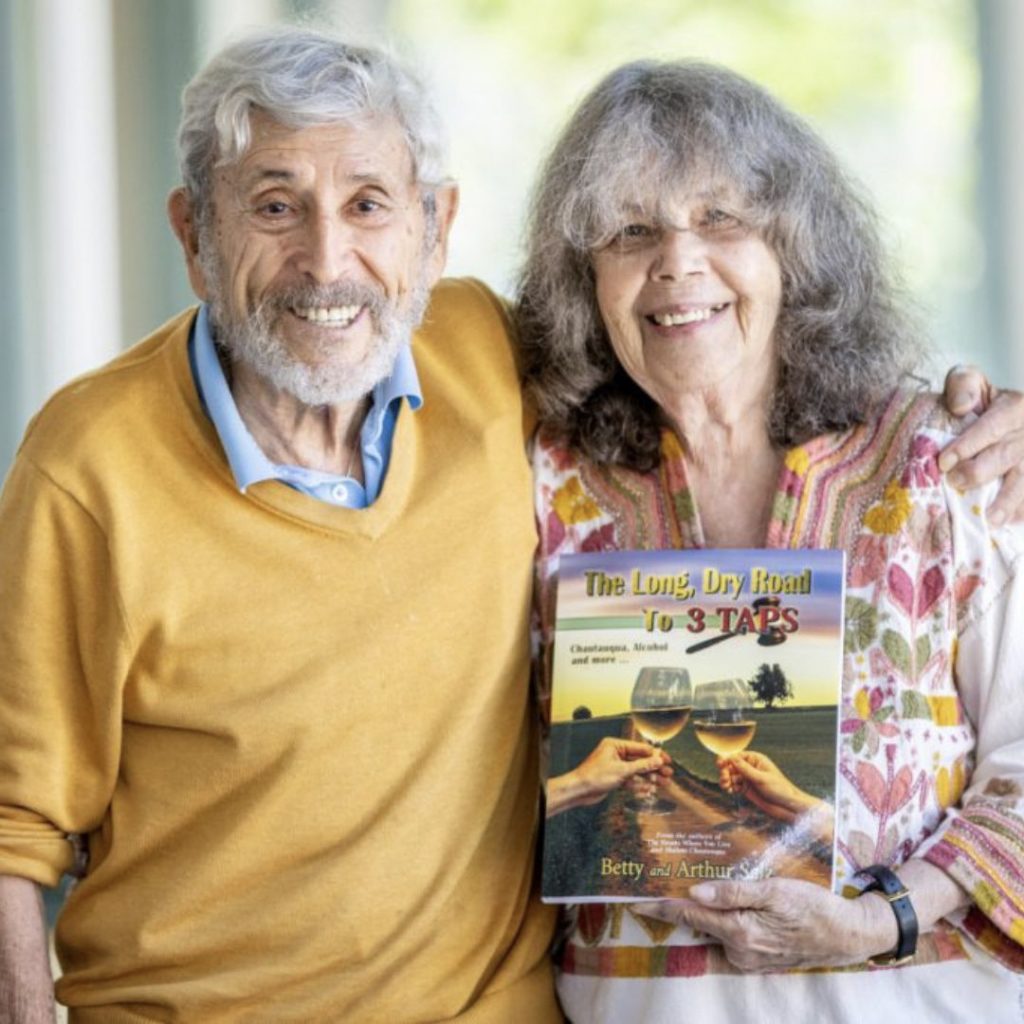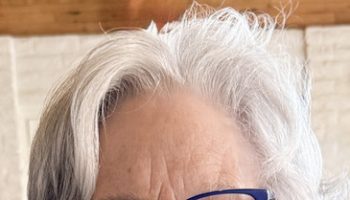
Many people think they have a pretty good idea about the history of alcohol at Chautauqua, including prohibition and the Women’s Christian Temperance Union.
Possibly — but probably not. Much of the history of that era has not been passed down from generation to generation, despite its surprisingly extensive national reach and its importance in women’s history.
At 9:15 a.m. Tuesday at the Chautauqua Women’s Club House, the Chautauqua Speaks series will welcome Betty and Arty Salz. Their talk title, “Long Dry Road to 3 Taps,” is similar to their most recent book about Chautauqua.
While the road to alcohol prohibition was indeed long, as the Salzes will demonstrate, it wasn’t boring. And while the road to 3 Taps (the bar and restaurant that opened in 2021 at the Pier Building) may have seemed long to some, as time went by, Chautauqua wasn’t particularly “dry” for many. They will share some of the stories about the latter that Chautauquans have told them.
The Salzes hail from greater New York City. Betty grew up in Manhattan, and Arty in Brooklyn.
Betty Salz attended Brooklyn College and majored in general education. Formed when Hunter College (for women) merged in 1930 with City College of New York (for men), it became New York City’s first public coeducational liberal arts college.
“When I was a sophomore, I had a free day,” she said. “I saw that The Lighthouse (for the Blind) in New York was offering transcription for the blind. I loved to read, so I thought I’d be a transcriber. I had to do 50 perfect pages without a mistake. … It took me a year to do that.”
During Salz’s senior year, the public school system was “desperate for teachers of Braille because there were so many kids (were) blind.” She said that as premature newborns, children had been given too much oxygen and developed retrolental fibroplasias, otherwise known as retinopathy of prematurity and Terry syndrome.
Given the severity of this condition, Salz said she delayed earning her master’s in education and instead taught Braille in New York City’s public schools — elementary, junior high, and high school — for a total of 33 years.
Arty Salz earned his doctorate at Columbia University’s Teachers College. A retired professor of education at Queens College within the City University of New York, he taught math and science courses to elementary education students and supervised student teachers.
In New York City, Salz is perhaps best known for creating Queens College’s Big Buddy Program. With the assistance of a team of faculty members who became program coordinators, and a guidance counselor, Salz’s students mentored and explored the city with children in homeless shelters in Queens from 1990 to 2015.
“I recruited Queens College students and had them work one-on-one with a child or in small groups,” Salz said. “The Big Buddy would go to the shelter at 9 a.m. every Saturday for the fall and spring semesters, talk with the Mom, (engage with the faculty coordinators), and then take the youngster out on the streets of Manhattan.”
He continued: “They’d go to parks, museums, the Empire State Building, South Street Seaport, the zoo. The parents were so pleased and appreciative. … In many cases, (they) became very good friends with the big buddy.”
In addition, four to five times a year, buses took the children, their big buddies, and the faculty coordinators upstate to Harriman State Park to go hiking, or to a Mets game, or a museum.
The Salzes came to Chautauqua by accident in June 1969.
“We had three very young children,” Arty Salz said. “We’d been ready to go to the Berkshires, where we’d been going, but the bungalow wasn’t going to be ready for us. We’d heard about Chautauqua from relatives. So we came for two weeks, stayed on Morris Avenue, and fell in love with the place.”
Two years later, friends “shamed” them into buying a cottage on Ames Avenue that had come on the market.
At Chautauqua, Betty Salz made good use of her knowledge of Braille during the 1970s.
“Chautauqua Institution sent me the (season program calendar) in April, and I (transcribed) it by hand,” she said. “There was a very active club of transcribers. People who were blind came into the club and told us what their needs were.”
Together the Salzes have written three books about Chautauqua: Chautauqua: The Streets Where You Live — A History of Street Names, Shalom Chautauqua: The Hebrew Congregation and the Jewish Presence and The Long Dry Road to 3 Taps: Chautauqua, Alcohol, and more …
The latter “we did during COVID when our kids were worried about us,” Betty Salz said. “We were trying to come up with a topic, and we thought, things had changed so much. … When there is change, people have different reactions to it. … We have to be respectful of all views. … There is a lot of sensitivity.”
There are no spoilers here. Come to the CWC House Tuesday morning and prepare to be awed.




